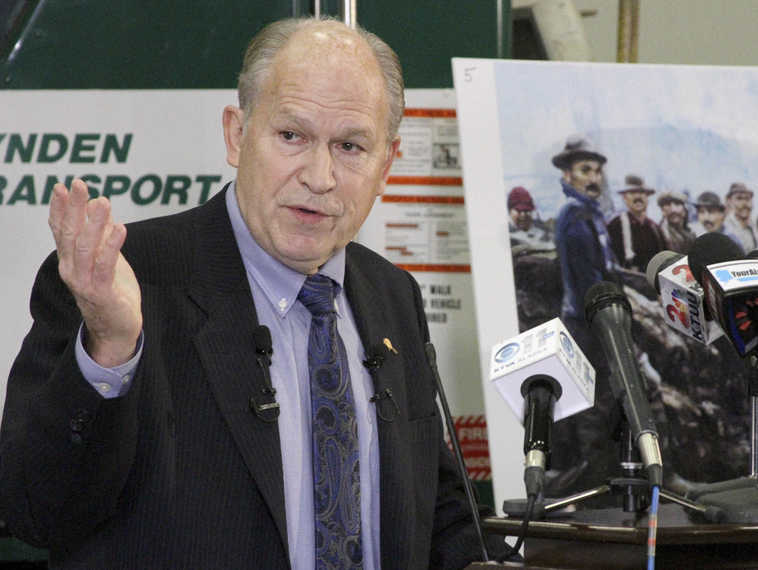JUNEAU — If Gov. Bill Walker gets his way, Alaskans will be chipping in to help reduce the state’s estimated $3.5 billion budget deficit.
Walker has proposed sweeping changes, including instituting an income tax for the first time in 35 years.
He’s suggested using the fund that provides annual checks to Alaskans to generate cash to help finance state government. His proposal would change how dividends are calculated, putting the checks at about $1,000 in the near future. The dividend over its lifetime has averaged about $1,150.
Here’s a closer look at Walker’s tax proposals:
What kind of income tax is being proposed?
The personal income tax would be 6 percent of your federal tax liability, the amount in taxes you pay the federal government. If your federal tax liability is $5,000, you would pay $300 in state taxes.
The approach is unique among states with income taxes, said Jared Walczak, an analyst with the Tax Foundation, an independent tax policy research organization.
Alaska’s tax would generate about $200 million a year.
Who would pay?
Walker has said the income tax wouldn’t apply to those at lower-income levels.
Generally, a single person under 65 would have to make at least $10,150 to file a federal return. For a married couple filing jointly, both under 65, that would be $20,300, according to Internal Revenue Service filing instructions for 2014.
The administration says the tax would capture out-of-state workers and profits of partnerships and “S corporations.” According to the IRS, S corporations allow income to flow through them without being taxed until it’s claimed by the shareholders.
If you itemize your federal income tax, the state tax would be deductible, state tax division director Ken Alper said.
How would this be implemented?
Earlier this year, following a proposal from Rep. Paul Seaton, R-Homer, the Department of Revenue estimated it would cost $14 million to add an income tax component to its tax revenue management system.
The department also figured it ultimately would need to hire 60 employees with annual operating costs at that staffing level starting around $7.2 million. Alper doesn’t expect that employee estimate to change dramatically under Walker’s proposal.
The state also anticipates needing to hire someone to help with an implementation plan, costing about $250,000, since the department doesn’t have much expertise administering personal income taxes, Alper said. Lawmakers did away with the state’s individual income tax in 1980.
“One of the inevitable controversies of the income tax is, it costs money to implement,” he said.
What about other taxes?
Walker is proposing increases in industry taxes, including mining, fishing, oil and tourism; increases in fuel for planes, boats and vehicles; and increases in alcohol and cigarette taxes. He’s also proposing changes to the oil tax credit program.
The alcohol tax equates to an increase of 10 cents per drink, and cigarettes to $1 a pack. The increase would be paid by wholesale distributors but likely will be passed on, Alper said.
What are the plan’s chances?
Legislators gave Walker credit for laying out a plan but were quick to pick at many of the ideas.
The entire package is likely to be a tough sell, with Republicans wanting to see deeper budget cuts and Democrats saying the tax and reduced dividend would hurt working-class Alaskans. Next year is also an election year.
House Finance Committee co-chair Steve Thompson, R-Fairbanks, said he doesn’t want to ask Alaskans to pay an income tax unless it’s absolutely necessary.
“We’re not sure we’re there yet; there’s room for more cuts,” he said in a release.

